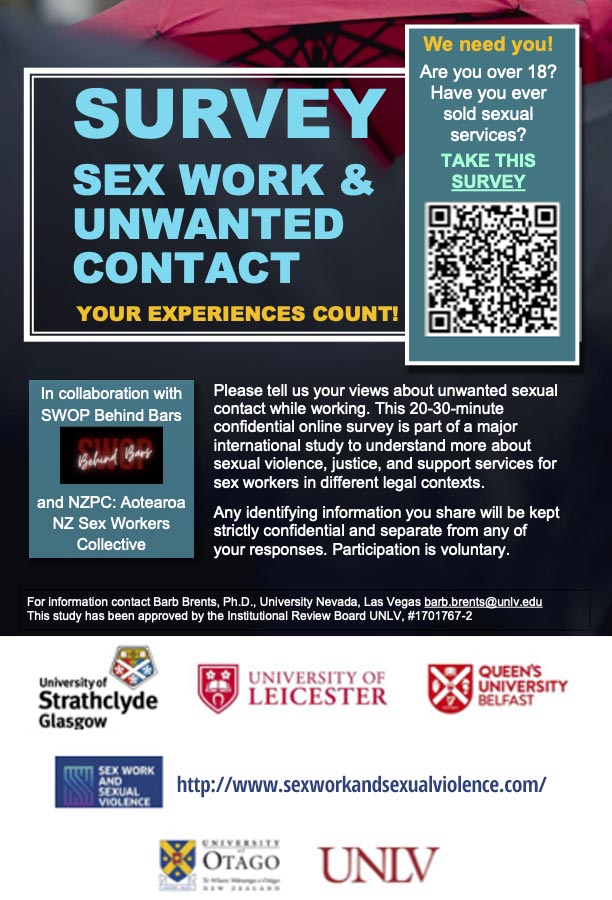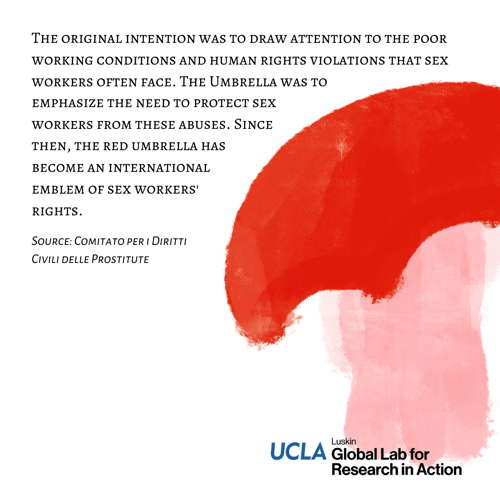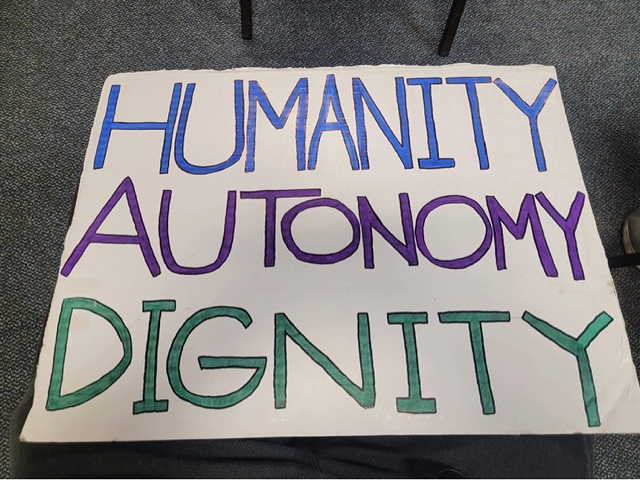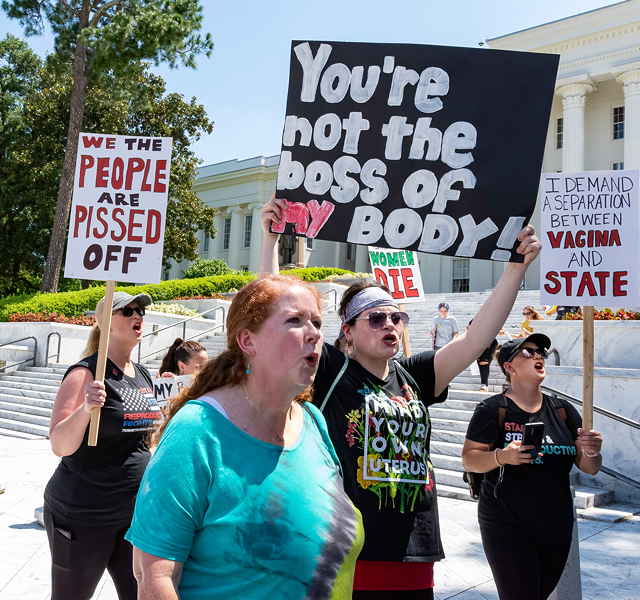September 15, 2022
Decriminalize Sex Work (DSW), joined by eleven other organizations working to ensure the health, safety, wellbeing, and human rights of sex workers and survivors of trafficking, filed a new Amicus brief supporting the appellants in a federal case challenging the criminalization of protected speech. The Stop Enabling Sex Traffickers and Fight Online Sex Trafficking Acts (SESTA/FOSTA), which became law in 2018, damage the longstanding “safe harbor” rule provided by Section 230 of the Communications Decency Act, which protects freedom of speech on the internet. Individuals depend on this freedom to work, socialize, and exchange ideas online.
Woodhull Freedom Foundation et al. v. United States argues that SESTA/FOSTA is an unconstitutional violation of the First and Fifth Amendments. The case, filed in 2018, has again reached the U.S. Court of Appeals for the District of Columbia. DSW’s Amicus brief details the historical and political contexts that have bred misguided anti-trafficking policies and laws built on the conflation of sex work and trafficking. The law’s failure to differentiate between the two has injured sex workers and survivors. “Both qualitative and quantitative evidence show that SESTA/FOSTA has caused immense harm to already marginalized and vulnerable communities, without advancing its purpose to combat trafficking. It must be repealed,” said Rebecca Cleary, DSW staff attorney, and attorney for Amici Curiae.
The brief also discusses the recently reintroduced SAFE SEX Workers Study Act (SSWSA), a bill proposed in U.S. Congress to study the harmful effects of SESTA/FOSTA. The introduction of this legislation demonstrates that lawmakers recognize the damage caused by SESTA/FOSTA, including many legislators who initially voted in favor of that bill. Amici also detail the ways in which SESTA/FOSTA’s restrictions on free speech limit advocacy efforts to advance the SSWSA, a critical and unconstitutional impediment to the democratic process.
Proponents of the law argue that fighting human trafficking, a heinous and violent crime, is worth broad internet censorship. However, the law, as written, fails to punish traffickers. Three years after it was enacted, the Government Accountability Office (GAO) found that it was an abject failure. Free speech, internet rights advocates, and law enforcement officials have protested the law. Instead of combating trafficking, SESTA/FOSTA:
* Endangers trafficking survivors and sex workers
* Impedes law enforcement’s efforts to find victims and prosecute traffickers
* Censors free speech on the internet and endangers the livelihoods of informal service sector workers
The brief concludes, “SESTA/FOSTA is the shining example of what happens when policymakers conflate sex work and human trafficking: trafficking numbers remain the same, victims get left behind, and those facing the greatest consequences are not traffickers but already marginalized communities.” Amici curiae include DSW, The Sex Workers Project of the Urban Justice Center, Freedom Network, Brooklyn Defender Services, The Erotic Laborers Alliance of New England, Old Pros, National Coalition for Sexual Freedom, New York Transgender Advocacy Group, Free Speech Coalition, Sex Workers Outreach Project Brooklyn, Gays and Lesbians Living in a Transgender Society (GLITS), and St. James Infirmary.
Elizabeth Nolan Brown covers the developments in the case, including DSW’s amicus brief in Reason here: There’s No Way FOSTA Isn’t a First Amendment Violation, Says Lawsuit.

DSW Newsletter #40 (September 2022)
DSW Challenges Constitutionality of Federal Law That Criminalizes Free Speech

8 Reasons There’s Nothing Equal About the Equality Model
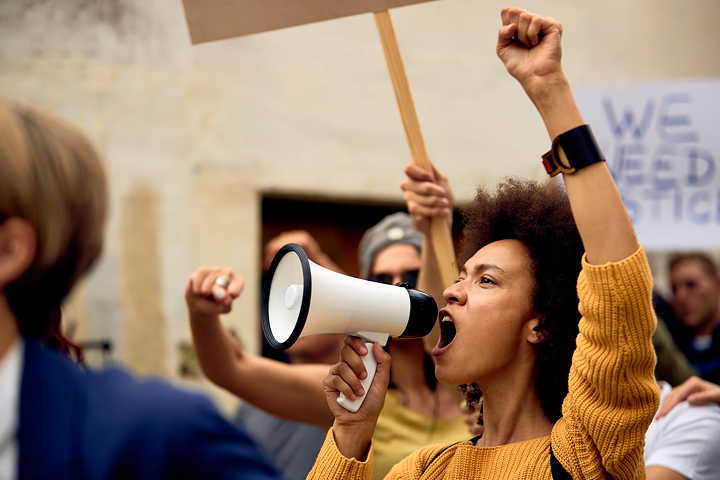
Red Umbrella Campaign
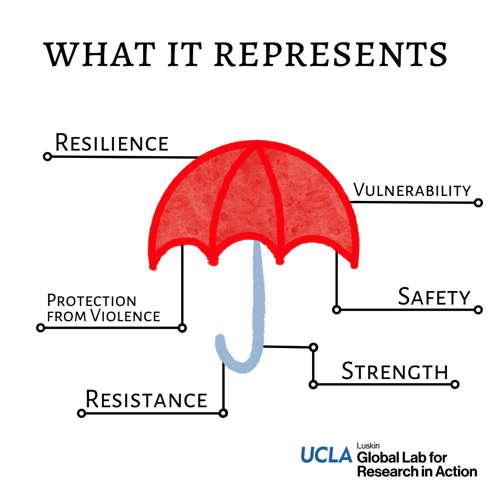
DSW Welcomes New Communications Manager

International Survey: Sex Work and Unwanted Contact
